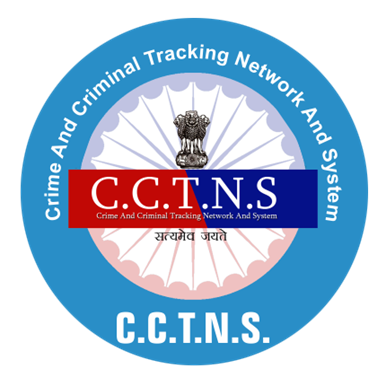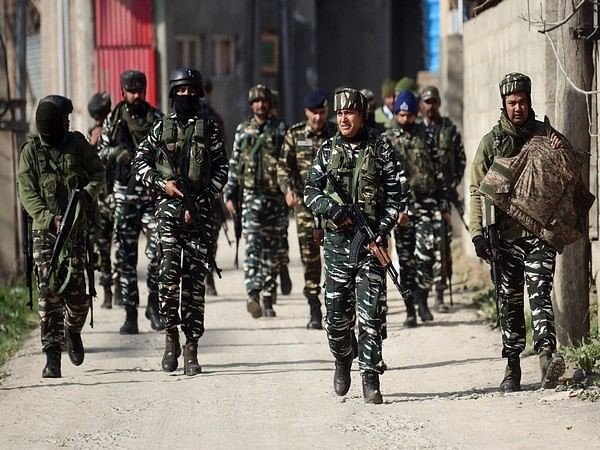What is internal security?
- Internal Security means preservation of sovereignty and integrity of the State from disruptive and anti-national forces from within the State.
- It refers to the measures and actions taken by a government to maintain law and order, protect its citizens, and safeguard its sovereignty within its own borders. It is the responsibility of the government to ensure that the country’s citizens, institutions, infrastructure, and resources are protected from threats such as terrorism, insurgency, organized crime, cyber-attacks, and communal violence.
- The concept of internal security may seem a modern construct but, unlike the common wisdom, it is as old as the construct of states.
- The earliest treatise of statecraft – Arthashastra by Kautilya – had references to management of security of state from internal as well as external threats. Kautilya in his Arthashastra places threats into four categories:
- Internal
- External
- Internally aided external
- Externally aided internal
Significance of internal security
Maintaining internal security is essential for the stability and prosperity of a nation. It enables citizens to go about their daily lives without fear of violence or disruption, fosters economic growth and development, and promotes social harmony and cohesion.
Constituents of Internal Security
- Internal security encompasses a wide range of activities, including intelligence gathering, border management, law enforcement, disaster management, and critical infrastructure protection. It involves close coordination between various government agencies, including law enforcement, military, intelligence, and administrative bodies.
- Governments invest significant resources in maintaining internal security, including training and equipping law enforcement and security forces, developing advanced technologies for surveillance and intelligence gathering, and implementing policies and programs aimed at addressing the root causes of security threats. Internal security also includes:
- Maintenance of Law and Order
- Safeguarding Sovereignty of the Nation
- Ensuring Domestic Peace and Tranquillity
- Freedom from Fear
- Social Harmony and Fraternity
Role of External states in creating challenges to Internal security of India
State actors, including governments, security forces, and intelligence agencies, can play a significant role in creating challenges to internal security in India.
- Insurgency in Jammu and Kashmir: The government of Pakistan, Pakistan army and ISI are believed to support various terrorist groups operating in the Indian state of Jammu and Kashmir, including Lashkar-e-Taiba and Jaish-e-Mohammed. These groups have carried out numerous attacks on Indian security forces and civilians in the region.
- Maoist insurgency: The Communist Party of India (Maoist), also known as Naxalites, has been engaged in a long-standing insurgency against the Indian government in several states, including Chhattisgarh, Jharkhand, and Odisha. It is believed that the Maoist in India are supported by china and Pakistan. The Maoists have been accused of carrying out attacks on security forces, government officials, and civilians.
- North-Eastern Insurgency: Various insurgent groups operate in India’s northeastern states, including the United Liberation Front of Assam, National Democratic Front of Bodoland, and National Socialist Council of Nagaland. These groups are supported by China, Pakistan and some sections from Myanmar.
- Cyberattacks: State actors, including foreign governments, have been accused of carrying out cyberattacks on Indian institutions and critical infrastructure. For example, in 2020, the Indian government reported that Chinese hackers targeted several Indian organizations, including pharmaceutical companies working on COVID-19 vaccines.
- Fake currency and drug trafficking: various state agencies of Nepal, Pakistan and Bangladesh such as ISI, Pakistan Army, Nepal police etc are involved in running fake Indian currency and drug trafficking racket in India.
Role Of Non-State Actors
What are non-state actors?
- Non-state actors can refer to any group or individual that operates outside the control of a government. These are organisations with sufficient power to influence and cause a change even though they do not belong to any established institution of a state.
- These include tribal and ethnic groups, criminal gangs, drug-trafficking organisations, several NGO’s, civil society organisations, extremist groups, multinational corporations, warlords and militias, parallel militaries, insurgents, transnational terrorists.
Reasons for Rise of Non-State Actors
- Globalisation: globalisation has allowed NSAs to develop alliances and generate support outside the immediate area of their operations.
- Increased funding: rise of the illicit global economy due to globalisation, has provided increased funding opportunities for NSAs. For some groups, the funds derived from these opportunities are an end in themselves; but for others, the funds helps them to pursue their political and military agendas.
- Increased use of social media: social media knows no international boundaries. Thus, it has become a preferred media of communication for NSA’s making it difficult for security agencies to keep a tap on them.
- Urbanisation: The sheer size of such cities will generate immense law and order and security problems, especially in poorer areas, and impose additional burdens on urban infrastructures that are already under stress.

Challenges created to internal security/ Outcomes of activities of state and non-state actors
Non-state actors from neighboring nations have been waging a proximate war through terrorism to “bleed India” for decades.
- Terrorism: India has been a victim of terrorism for decades, with groups such as Lashkar-e-Taiba, Jaish-e-Mohammed, and Hizbul Mujahideen carrying out attacks on civilians, security forces, and infrastructure. The ongoing insurgency in Jammu and Kashmir is a significant security challenge, as is the growing influence of ISIS in some parts of the country.
- Insurgency: Several groups in India are fighting for autonomy or independence, such as the Maoists in Central India, the United Liberation Front of Assam (ULFA) in the Northeast, and the Khalistan movement in Punjab. These groups resort to violence and pose a significant challenge to the government’s efforts to maintain law and order.
- Naxalism: Naxalism is a form of left-wing extremism that seeks to overthrow the government through armed struggle. It is prevalent in several states of India, including Chhattisgarh, Jharkhand, and Odisha, and poses a significant threat to the government’s authority in these areas.
- Stokes social unrest: a number of dubious non-governmental organizations (NGOs) and so-called organizations of the civil society work to stoke unrest in various segments of Indian society and raise concerns about the country’s internal security. For example, Various US non-profits are alleged of supporting various environmental protests against development projects in India, thus stalling development in India.
- Threat to economic and social stability: NSA’s endangers economic and social stability of India as a result of a number of dubious non-state entities operating narcotics and counterfeit currency operations. Fake currency creates a parallel economy where as narcotics impacts youth of nation thus harming human capital of the nation.
- Communal violence: India has a history of communal violence between different religious and ethnic groups, which often leads to loss of life and property. The rise of Hindu nationalism and the targeting of minority communities has increased the risk of communal violence in recent years. For example, the 2020 Delhi riots were one of the worst communal riots in the country in recent years, which resulted in the death of more than 50 people.
- Cybersecurity: With the increasing use of technology and the internet, cybersecurity has become a significant concern for India’s internal security. Cyber attacks on government infrastructure, financial systems, and critical infrastructure pose a threat to the country’s stability and economic growth. For instance, the recent cyber attack on the power grid of Mumbai city in Maharashtra was a serious threat to the internal security of the country.
- Border security: India shares borders with several countries, including Pakistan, China, Nepal, Bangladesh, and Myanmar. The porous nature of these borders makes it easy for terrorists, smugglers, and other criminal elements to cross into India, posing a significant challenge to border security.
How to counter state and non-state actors?
- Strengthen coastal security: India needs to strengthen its coastal security considerations to protect its vital economic interests in two million square kilometres of the Exclusive Economic Zone. Security enhancement in this vital area has been delayed for a bit too long now.
- Strengthening Intelligence Capabilities: Effective intelligence gathering is critical in identifying and preventing threats to internal security. India needs to enhance its intelligence capabilities by improving coordination between different intelligence agencies, investing in modern technology and training for intelligence personnel, and sharing intelligence with international partners. For example, India’s intelligence agencies played a crucial role in preventing a terrorist attack on the US embassy in New Delhi in 2011.
- National Security Doctrine: a comprehensive national security doctrine needs to adopted which clearly lays down the aims and agenda of internal security of India and ways to achieve them.
- Taming anti India NGO’s and Think tank: Few so called NGOs and think tanks which secretly function very skillfully provide extremists with intellectual and ideological space by projecting them as social revolutionaries. Such organisations and people should be held accountable as they are equally guilty and responsible for hampering the internal security system as the people who take to arms.
- The National Security Council: and the Cabinet Committee on security has to evolve more effectively to frame counter strategic programme against security threats in a proactive manner.
- Police reforms and criminal justice system reforms: Long pending police reforms must be finalised within a time frame along with the reforming of the criminal justice system.
- Border Management: Securing India’s borders is essential to prevent non-state actors from infiltrating the country. India needs to strengthen its border management infrastructure, including increasing the deployment of border forces, building surveillance systems, and establishing cooperation with neighboring countries to prevent infiltration. For example, India has successfully deployed sophisticated surveillance technology, including thermal cameras and ground sensors, to monitor its border with Pakistan.
- Law Enforcement Measures: India needs to enhance its law enforcement measures to address internal security threats. This includes strengthening the police force, improving forensic capabilities, and enhancing legal measures to prosecute offenders. In addition to these, security laws such as National Security Act, UAPA, PMLA, FCRA needs to be strengthened.
- Diplomatic Measures: Diplomatic efforts can help counter state-sponsored threats to internal security. India can engage in dialogue and negotiations with neighboring countries and international partners to address issues related to terrorism, cybercrime, and organized crime. For example, India has been working with the US, Israel, and other countries to share intelligence and improve cybersecurity.
- Economic Measures: Addressing economic inequality can help prevent the rise of non-state actors. India needs to focus on economic development, job creation, and poverty reduction to prevent radicalization and insurgent movements. For example, India’s government has launched several schemes to promote economic development in conflict-affected areas, such as the Integrated Action Plan for Naxalite-affected areas.
Steps taken by government to enhance internal security of India
- Successfully concluded the dialogue on Naga political issue
The Government of India and the National Socialist Council of Nagaland (NSCN) successfully concluded the dialogue on Naga political issue, which has existed for six decades, and signed an agreement on Aug 03, 2015 in the presence of the Prime Minister Shri Narendra Modi. This agreement will restore peace and pave the way for prosperity in the North East. Dialogues with other extremist groups are also taking place which have helped reduce violent incidences in north east.
- Enhanced financial powers
The Ministry of Home Affairs enhanced financial powers of the Directors General of Central Armed Police Forces (CAPFs) and Directors of Intelligence Agencies in December, 2014. The financial powers have been doubled from Rupees Five Crores to Rs. Ten Crores in respect of Major Works that are to be executed by CPWD and Public Works Organisations. Similarly, limits for Major and Minor Departmental Works and Land Acquisition were also substantially raised.
- Crimes and Criminals Tracking Network and Systems (CCTNS)
The Ministry launched the Crimes and Criminals Tracking Network and Systems (CCTNS) Project in 2009 with an outlay of Rs.2,000 crores. CCTNS would help in Digitization of data and development of a national data base of crimes and criminals that would help enhance the operational efficiency of the crime investigation agencies.

In conclusion, countering state and non-state actors creating challenges to internal security in India requires a multi-faceted approach that involves intelligence gathering, border management, law enforcement, diplomatic efforts, and economic measures.
By adopting such an approach, India can effectively address the threats to its internal security and promote stability and prosperity in the region.






